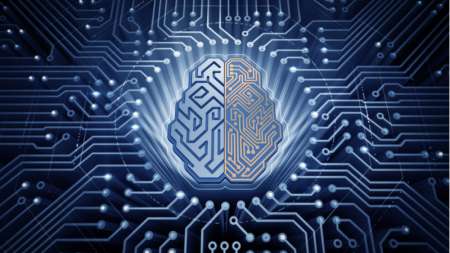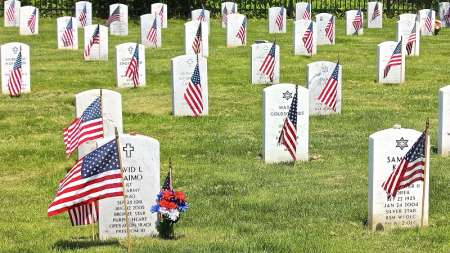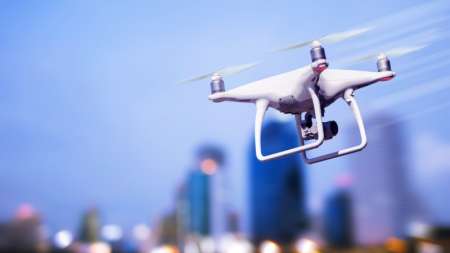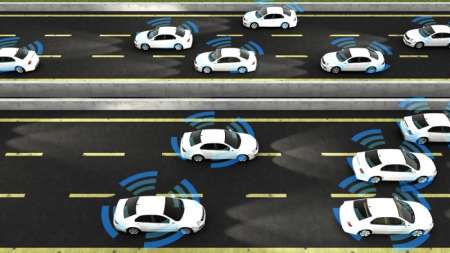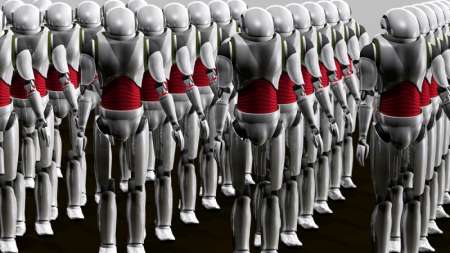The Intelligence Community wants to develop a kind of universal translator that will search documents across a full range of media and make sense of them for English-speaking analysts. […]
As the new year begins, Alfred Rivera, director of the Defense Information Systems Agency’s (DISA) Development and Business Center, will retire from the Federal government. Rivera, who stepped down today, has been in the Federal service for 35 years, and spent all but 10 of those years at DISA. Rivera will begin consulting following his retirement from the public sector. […]
With the Internet for transportation, a lie can get all the way around the world before truth can blink itself awake. And that’s a challenge for those who seek to stem the proliferation of false information, be it accidentally misattributed quotes, political propaganda, or malicious “fake news.” Artificial intelligence can help combat the problem, by using machine learning algorithms to detect the patterns used in phony stories and ads designed to stir up fear or outrage, or, in the case of Russian disinformation, unsettle people’s faith in American institutions. […]
Despite an air of uncertainty coming from the Trump administration, the Department of Energy’s research arm is forging ahead with what it calls “transformational research,” putting up $100 million to try to ensure that it doesn’t miss a trick when it comes to potentially disruptive energy research. […]
The Defense Threat Reduction Agency (DTRA), faced with a growing and diverse threat of chemical and biological attacks, is ramping up efforts to use technology to detect and, when possible, prevent attacks. […]
The White House wants to clear the way for Federal agencies to adopt commercial cloud computing, even if that means tweaking acquisition rules to help them get there. […]
Bruce Greenstein, Department of Health and Human Services (HHS) CTO knows Feds need help combating the Opioid crisis. That’s why HHS convened the Opioid Symposium last week at the Hubert H. Humphrey Building, bringing Federal, state and industry players together to brainstorm on one of the nation’s toughest issues. Fourteen sessions later, and sharing data, innovating, communicating, and remembering the human impacts emerged as the key takeaways. […]
In a move to help Federal agencies streamline and modernize their technology infrastructure, President Trump signed the Modernizing Government Technology (MGT) Act into law today. […]
In light of recent advances in performance–not to mention the history of computing–it’s reasonable to assume that artificial intelligence and machine learning systems will become smarter and faster. But government-funded research that is being put into practice at the Air Force Research Laboratory (AFRL) could achieve new levels of performance while also consuming minimal amounts of power. […]
The Defense Department (DoD) is leading the brain-computer interface charge within government, recently investing $65 million across six projects. Each of these projects will work to develop high-resolution neural interfaces and working systems that could help in sensory restoration, specifically in these projects with regard to sight and speech. The contractors–five research organizations and one private company–will work under the Defense Advanced Research Project Agency’s (DARPA) Neural Engineering System Design (NESD) program, which was launched in 2016 with the goal of developing an implantable neural interface able to deliver high-bandwidth data transfers between the brain and electronics systems. […]
For military analysts struggling to make proper use of millions of hours of full-motion video from drones, the cavalry will begin arriving this month, in the form of computer vision algorithms developed under the Department of Defense’s (DoD) Project Maven. […]
How far can we push the limits of computing power? That is a question that scientists at the National Institute of Technology and Standards (NIST) are pondering. […]
As Feds get smarter about Artificial Intelligence on the cyber frontier, seems agencies’ IT defenders are suffering from schizophrenia about cyber cyborgs. That’s the topline takeaway from the new MeriTalk “Federal Cyber AI IQ Test” study. […]
With $5 billion in global revenue, Symantec is the 500 pound yellow gorilla in the cybersecurity business. Some dimensions on the beast: installed at every Federal cabinet-level agency; supports 350,000 customers; tracks 700,000 hackers; and leverages more than nine trillion elements of security data. Now, that’s a big monkey. […]
In honor of National Veterans and Military Families Month, the Department of Veterans Affairs’ National Cemetery Administration (NCA) is recommitting itself to its mission to “memorialize veterans in perpetuity.” The NCA is turning to crowdsourcing to revamp its outdated Nationwide Gravesite Locator, a web portal that allows users to access burial information for cemeteries across the […]
The innovations of the Internet of Things can only improve health care in rural America once there is complete broadband access and adoption. “The benefits of telehealth are not available to patients without access to high-speed Internet across America. As technology and health care services expand to meet patients where they live, broadband coverage must improve to make this care accessible,” Michael Adcock, executive director of the Telehealth Center University of Mississippi Medical Center, told the Senate Commerce, Science, and Transportation Committee. […]
The Department of Transportation announced the Unmanned Aircraft Systems (UAS) Integration Pilot Program on Oct. 25, which is an initiative to safely test and validate advanced operations for drones in partnership with state and local governments. […]
Sens. John Thune, R-S.D., and Gary Peters, D-Mich., plan to announce legislation that would pave the way for increased innovation in self-driving vehicle technologies. “Ultimately, we expect adoption of self-driving vehicle technologies will save lives, improve mobility for people with disabilities, and create new jobs,” they said in a statement. […]
Attending events like the Global City Teams Challenge Expo has proven to be an important learning and collaboration opportunity for cities around the world looking to start smart city initiatives, according to Zse-Hong Tsai, chief human resources officer for the Asia Silicon Valley Development Agency in Taiwan. “We have the chance not only to learn experiences from others, we can also enjoy the opportunity to start collaboration with other cities or with other industries and companies,” said Tsai. […]
The American Civil Liberties Union described full adoption of artificial intelligence at any cost as a “recipe for tyranny.” Ben Wizner, director of the ACLU Speech, Privacy, and Technology Project, wrote in a blog post that the government needs to consider the rights of citizens as artificial intelligence becomes more ingrained in society. “Liberty is […]
The National Institute of Standards and Technology and the Department of Homeland Security announced the next phase of the “Smart and Secure Cities and Communities Challenge,” a partnership to bring together Smart City initiatives and DHS’s security expertise and resources, at the Global City Teams Challenge Expo. […]
Direct Relief, a humanitarian organization that delivers medical supplies to crisis areas, uses Esri mapping technology and data to send resources to Houston during Hurricane Harvey. Direct Relief uses data layers from the Census, the National Weather Service, and other open data platforms to target where certain medical supplies such as inhalers and other medications will be needed. […]
Military bases operate like their own towns and cities, and should be considered partners in smart city initiatives, according to Richard Kidd, deputy assistant secretary of the Army, who spoke at the Global City Teams Challenge Expo. “The Army runs 156 towns across America and every day more than 2 million people go to work inside those towns and cities that are Army installations,” said Kidd. “We are facing many of the challenges that you are facing.” […]
Automation is inescapable, but that doesn’t mean jobs will be lost, according to Cathy Engelbert, CEO of Deloitte. Engelbert said in a LinkedIn post that new types of jobs will arise from the adoption of autonomous vehicles. […]
The Association of Public-Safety Communications Officials tapped IBM to bring Watson into their software. APCO recently announced that APCO International’s new guide card software called APCO IntelliCommä will use IBM Watson Speech-to-Text and Watson Analytics to improve the scripts used by 911 operators. […]
As a Democratic senator drafts a bill to look into artificial intelligence policy, Elon Musk and Google teach machines human judgment in order to avoid the robot apocalypse. […]
Technological innovation has a very low chance of creating the mass job displacement predicted by many experts, according to research recently released by the Information Technology and Innovation Foundation (ITIF). […]
Much of the government has a fear of taking technological risks, and it is the role of digital services teams to snap agency leadership out of that way of thinking, according to Digital Services panelists at the AWS Public Sector Summit on June 13. […]
In order to improve the Federal acquisitions process, agencies need to seek out more teamwork with the private sector and with each other, according to Tim Cooke, president and CEO of ASI Government. […]
Government officials predict that though getting all Federal agencies to comply with the recent Cybersecurity Executive Order and the Modernizing Government Technology (MGT) bill will be difficult, the outcomes will be very beneficial for government. […]












